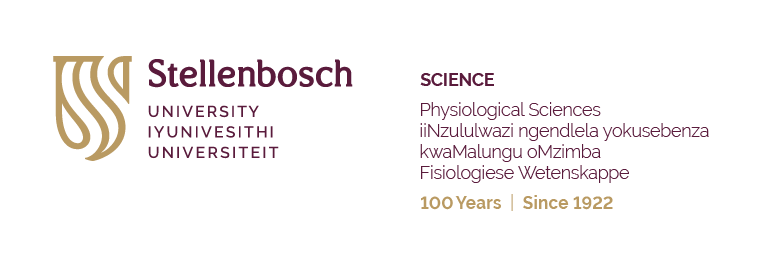???
Strategic goals for community interaction
Increased involvement and presence in local, national and international communities, with the primary aim to emphasise the important role of physiological sciences in the interaction of human and its environment. The overall mechanism of community interaction is based on the application of scientific expertise (both academic and research) to reach out to the community (the broader public and various scientific spheres).
The main focus of the department lies in educational development of young learners through awareness programmes such as school open days, winter week and other presentations to schools. Furthermore, dissemination of knowledge to the broader scientific sphere, the general public through different forums (broadcasting and journalistic media, conference presentations, scientific journals and text books etc.) is also a focus point.??
Current Projects???
Eskom Expo for Young Scientists, Stellenbosch regional competition
Young upcoming learners from the Western Cape Province annually compete at the ESKOM Expo. Our department is very active in this initiative that runs through the Faculty of Sciences. Various staff members are delegated to provide inputs and act as judges on the selection panels.
SU Life Science Outreach
This initiative involves the presentation of Life Science practical sessions for Grade 10-12 learners at Lückhoff Secondary School in Idas Valley, Stellenbosch. It was conceptualized and developed by staff from the Department of Physiological Sciences, Faculty of Science, and the Department of Food Science, Faculty of Agri Sciences. The primary goals are to: Provide resource and infrastructure support to this disadvantaged and under-resourced school; aid the teachers in conceptualizing, developing and implementing practical sessions in line with the prescribed syllabus and with the availability/provision of resources; and facilitate the presentation and demonstration of practical work to enhance science learning and skills development.
The expected outcomes and impact of the initiative is to equip Life Science learners with a better understanding of the topics covered, enhance broader scientific skills and develop specific new experimental skills. Further, to instill a passion for biology and a vision for a future career in the field, especially within the social setting of learners from disadvantaged communities. In summary, learners from disadvantaged backgrounds are exposed to unique practical training and to future opportunities in the field of Life Science and biology, while teachers gain additional insight to novel and creative practical ideas .
 ?
?
Paarl Girls High School
As part of a collaborative outreach initiative between the Biochemistry, Physiology, and Microbiology Departments, we welcomed Grade 10 learners from Paarl Girls High School. This initiative provides learners with a unique opportunity to explore key science disciplines offered at Stellenbosch 肆客足球. During their visit to the Physiology Department, students gained hands-on experience using a light microscope to examine tissue samples. They learned to identify various tissue types by analysing their distinct histological features, deepening their understanding of cellular structures and functions.

? ????
????



